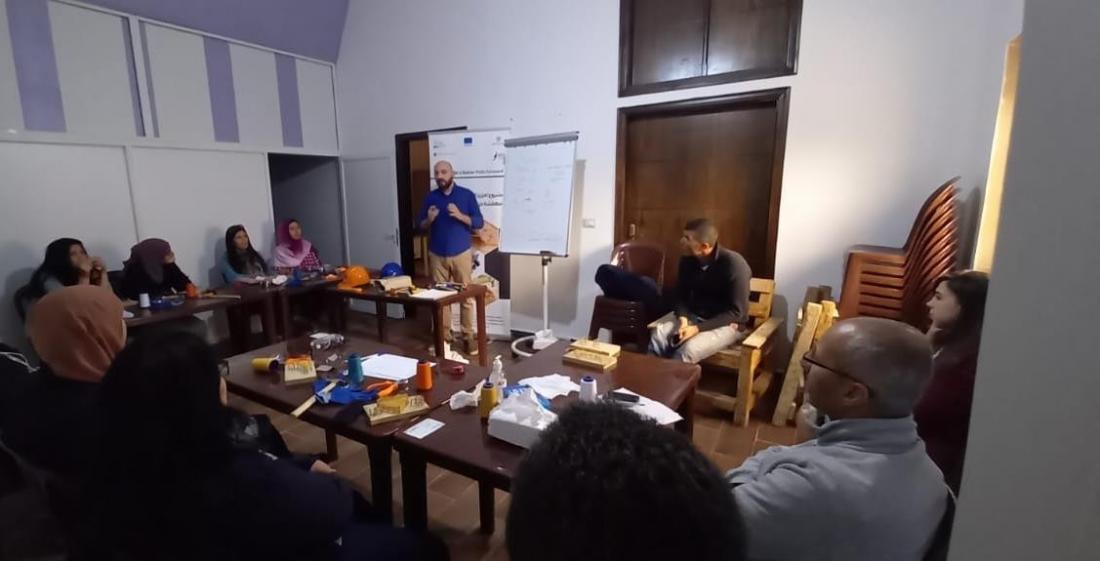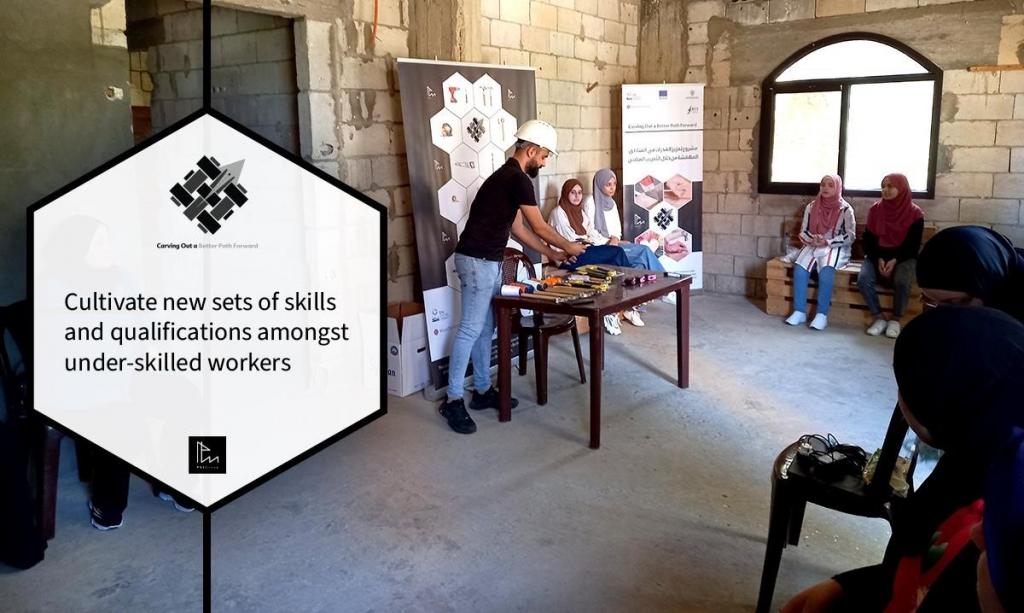MoreThanAJob subgrants in Lebanon trained people in the South on proper health, safety and management skills at the workplace

Lebanon is witnessing economic, social, and political crises, deteriorating enhancement efforts. However, as an extension to previous efforts PHI group, a subgrantee of MoreThanAJob, mobilized its internal resources and planned its outreach activities across the South this time. Back in May 2022, it already provided training in the Bekaa region. Under the framework of “Carving out a Better Path Forward", PHI group was able to extend the spread of its roots across the socially diverse Lebanese society as it sustained its trainings titled at the end of June, 2022.
The program continued to exert its efforts in addressing the inequalities present within the Lebanese labor market, particularly in the most deprived areas in Lebanon such as Bramiyeh in the South. PHI facilitators reached out to the municipalities of Sidon, Bramiyeh and Hlaliyeh, , local authorities and CBOs in the area, introducing the project objectives and outcomes. They selected the direct beneficiaries of this project, after conducting a wide needs mapping of each targeted areas. With the assistance of the local stakeholders the outreach team approached and gathered 10% of the program’s total beneficiaries (more than 500 under-skilled women and men) in the South. 80% of the participants were women and 20% men.

New sets of skills and qualifications amongst under-skilled workers, especially those coming from less privileged areas in Lebanon have been cultivated. Help and support were provided to those who are deeply affected by the situation in Lebanon through offering health and safety in the workplace awareness sessions, vocational trainings for under skilled labor and soft skills trainings. The awareness sessions were divided into two segments whereby the first was carried by the Lebanese Civil Defense team performed the awareness sessions constituting the knowledge and technique of the basic first-aid to any handcraft or high-risk job-related injuries and accidents. The other section was fulfilled by a professional Safety Engineer, a trainer in the field of handcraft, where he educated the beneficiaries with regards to the general prevention and safety measures in the workplace and home.
Another training was conducted by PHI group focusing on how unused items or discarded material can be converted into useful products, and thus be turned into a useful opportunity. The training included several activities and exercises that aimed at enhancing the participants’ knowledge and empowering them with practical skills to manage and engage effectively in the workplace. 36 beneficiaries were divided into 5 workstations, in which they had the opportunity to try the Do-It-Yourself handcrafts, and to learn how to create wood-based products. They acquired the needed skills to turn old material into small handcrafted items which have a potential selling value. This training resulted of many workstations in each targeted area, while 3 of those were gifted to eager beneficiaries. During these coaching sessions, the targeted beneficiaries acquired additional business skills in relation to how to choose their projects based on their study of markets and its needs assessment. They were also introduced to how to develop their business ideas, pricing techniques and marketing strategies
Testimonies concerned with the human rights violation, gender discrimination or harassment, or even maltreatments by employers and unattained health accidents had been recorded by the trainers to be reported to the committee once established. 50% of the women beneficiaries experienced bullying and pressure for working in jobs that require physical work and for using hand and power tools.
At the end of the 3-training days, at least 75% of the participating beneficiaries showed interest in expanding their acknowledgement from what they acquired into small businesses and were extensively informed on the numerous possibilities of forming alliances with other present beneficiaries to enhance and promote their businesses. Almost most of the beneficiaries in each of the targeted area have expressed their gratitude specially for the Handcraft Vocational Training, as they expressed their need to develop new skills in order to assist their families in generating income and savings in minor house repairs.
PHI Group managed to overcome many challenges encountered during the implementation of the project, with sincere gratitude to both local partners in MoreThanAJob project: common effort, for offering their centers for PHI’s implementation while also sharing resources, and BCTS, for offering their resources and connections when the country was going through a severe economic and social crisis. One of the main challenges faced was due to the abrupt cost of transportation where there was no budged allocated for it, and PHI Group had to bear all the costs of it. Another challenge was the economic and financial constraints burdening the beneficiaries. However, PHI Group’ efforts were not stalled by these adversities. It stood against all circumstances where it started the extensive planning, inception phase and the implementation. The whole arduous situation did not stop PHI Group from achieving its purpose; it conducted a solid outreach activity, adapted its program, collected feedback and was able to sustain its objectives as promised. The program is not over yet; it will be sustained through other trainings that will be conducted across different Lebanese regions.
Follow us on the project website and on our social channels (Facebook, LinkedIn, Twitter) to find out more about the local initiatives of MoreThanAJob.









